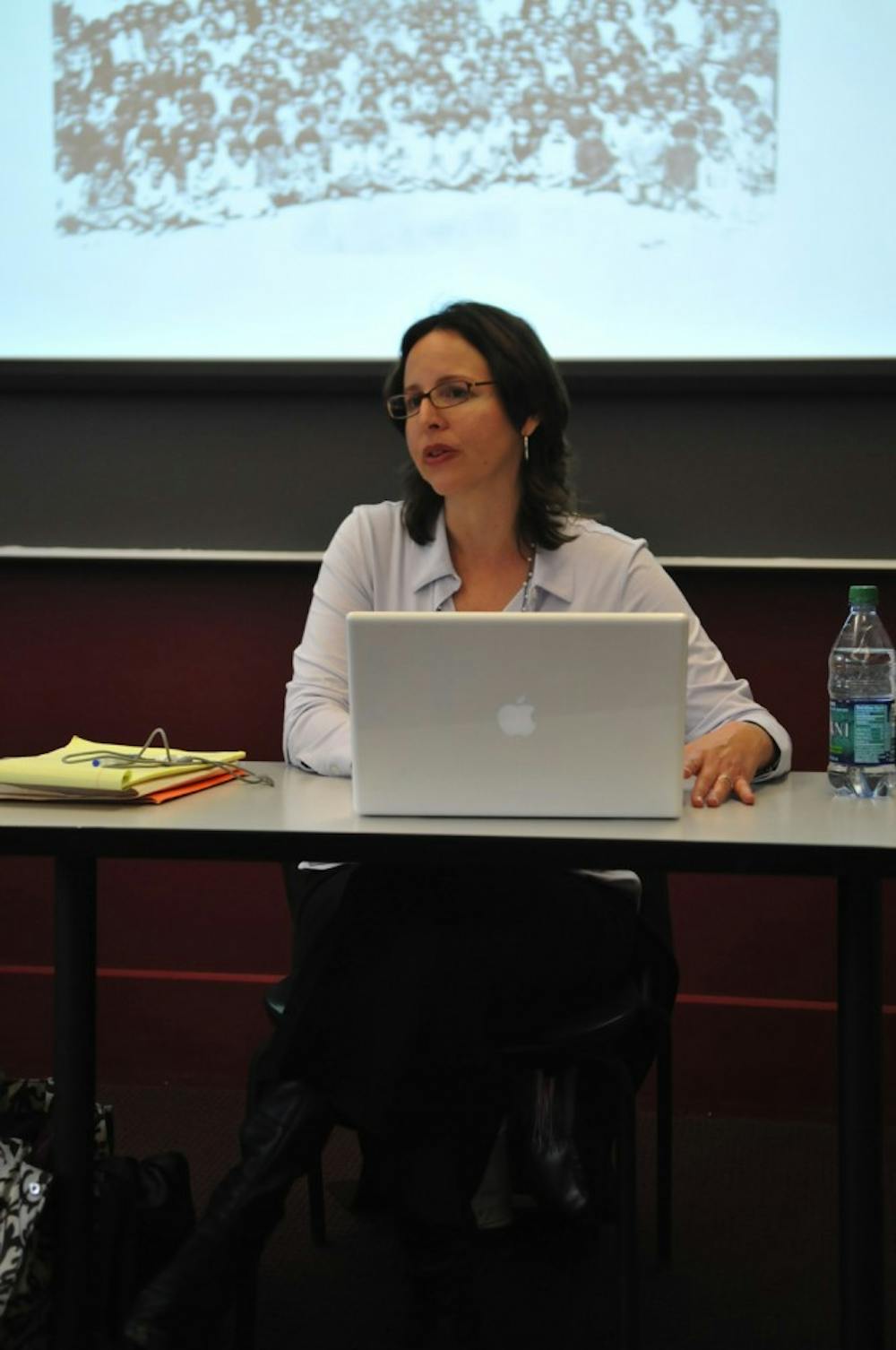On Monday afternoon, an engaged handful of individuals traded their lunch hour for an informational talk on one of Iran’s most influential girls’ schools of the 20th century.
Jasmin Rostam-Kolayi, a Near East History scholar, discussed the Tarbiyat Girls’ School of Tehran which was shut down by the state in 1934. She focused on its institutional history and intellectual contribution to the core framework of the modern Iranian education system for women.
Established in 1911, Tarbiyat opened in Tehran prompted by the joint partnership between Iranian and North American Baha’is. The name Tarbiyat originates from the Arabic term adopted by the Persians, which means “cultivation” or “training.”
According to Rostam-Koyali, private individuals, both Muslim and non-Muslim, as well as foreign organizations and missionaries filled the absent role of the Iranian state as educators during the school’s years of operation. They fulfilled this task by establishing schools with an innovative curriculum focused on the teaching of foreign languages, sciences and humanities.
Among all of Tarbiyat’s achievements, its founders — who were Baha’is from Iran and North America — distinguished the institution from other private girls’ schools of the period.
Frequently referring to her own research and various scholarly sources, Rostam-Koyali evaluated the success of the Tarbiyat Girls’ School, where enrollment grew from 50 students in its beginning to over 750 students by its closure.
Rostam-Koyali also focused on the school’s sustainability during a time period when Baha’is in Iran were “generally targets of persecution by both the state and the clerical establishment.” She also elaborated on Tarbiyat’s historical significance and its influence on current Iran-United States relations.
Rostam-Koyali covered a broad spectrum including the crucial presence of women within the school such as Susan Moody, a Baha’i from the United States who advocated the start of the girls’ school.
Additionally, Rostam-Koyali presented the ethnic tension among Iranian and American Baha’is and the challenges that the school faced during its years.
John Ghazvinian, a former Penn professor who shares Rostam-Kolayi’s interest in the Middle East, was “satisfied with the event — it was helpful to see more specific approaches to the subject.” He added that he hopes to “see more of similar events on campus.”



